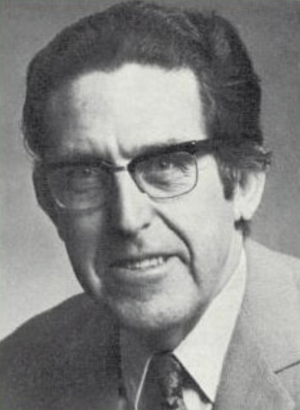Kep Enderby facts for kids
Quick facts for kids
Kep Enderby
|
|
|---|---|
 |
|
| Attorney-General for Australia | |
| In office 10 February 1975 – 11 November 1975 |
|
| Prime Minister | Gough Whitlam |
| Preceded by | Lionel Murphy |
| Succeeded by | Ivor Greenwood |
| Minister for Manufacturing Industry | |
| In office 9 October 1973 – 10 February 1975 |
|
| Prime Minister | Gough Whitlam |
| Preceded by | Dr Jim Cairns |
| Succeeded by | Jim McClelland |
| Minister for the Capital Territory | |
| In office 19 December 1972 – 9 October 1973 |
|
| Prime Minister | Gough Whitlam |
| Preceded by | office established |
| Succeeded by | Gordon Bryant |
| Member of the Australian Parliament for Australian Capital Territory |
|
| In office 30 May 1970 – 18 May 1974 |
|
| Preceded by | Jim Fraser |
| Succeeded by | Division abolished |
| Member of the Australian Parliament for Canberra |
|
| In office 18 May 1974 – 13 December 1975 |
|
| Preceded by | New seat |
| Succeeded by | John Haslem |
| Personal details | |
| Born | 25 June 1926 Dubbo, Australia |
| Died | 7 January 2015 (aged 88) |
| Political party | Australian Labor Party |
| Alma mater | University of Sydney |
| Occupation | Barrister |
Keppel Earl Enderby (born June 25, 1926 – died January 7, 2015) was an important Australian politician and judge. He was also known as Kep Enderby. He was a member of the Australian House of Representatives, which is part of Australia's parliament. He represented the Australian Labor Party from 1970 to 1975. Later, he became a senior minister in the government led by Gough Whitlam. After his time in politics, he became a judge in the Supreme Court of New South Wales.
Early Life and Education
Kep Enderby was born in Dubbo, a town in New South Wales, Australia. He went to Dubbo High School. His parents owned a milk bar. During 1944 and 1945, he trained to be a pilot in the Royal Australian Air Force.
After the war, he studied law at the University of Sydney from 1946 to 1950. He became a lawyer in New South Wales in 1950. He was also a very good amateur golfer. He won the 1946 New South Wales Amateur Championship. He played golf for New South Wales in big team matches from 1946 to 1949.
From 1950 to 1954, he worked as a lawyer in London, England. He also continued his studies at the University of London. While there, he played golf in major British championships in 1951 and 1952.
Return to Australia
Kep Enderby came back to New South Wales in 1955. He worked as a lawyer and taught at Sydney Technical College. He helped start the NSW Council for Civil Liberties, a group that works to protect people's rights.
In 1962, he became a law lecturer at the Australian National University in Canberra. By 1966, he was practicing law in Canberra while still teaching part-time. In 1973, he was appointed a Queen's Counsel (QC). This is a special title for experienced lawyers.
Political Career
In 1970, Kep Enderby was chosen by the Australian Labor Party (ALP) to run for parliament. He was elected to the Australian House of Representatives in a special election. He represented the area called the Division of Australian Capital Territory.
As a member of parliament for the ACT, he was involved in discussions about the 1971 Canberra flood. When Gough Whitlam's party won the election in 1972, Enderby became a minister. He was the first Minister for the Capital Territory and the first Minister for the Northern Territory.
In 1973, he changed roles and became the Minister for Secondary Industry and Minister for Supply. In 1974, these roles were combined into the Manufacturing Industry portfolio.
In February 1975, Kep Enderby became the Attorney-General of Australia. This is the chief legal advisor to the government. He also became the Minister for Customs and Excise. This role was later renamed Police and Customs.
Enderby was elected to a new area called Division of Canberra in the 1974 election. However, he lost his seat in the 1975 election. This happened after the 1975 Australian constitutional crisis, when the Whitlam Government was removed from power.
Life After Politics
After leaving politics, Kep Enderby moved to Sydney. He went back to working as a lawyer. From 1982 until he retired in 1992, he served as a judge of the Supreme Court of New South Wales.
He also held several community roles. He became very involved with Esperanto, a language created to be easy to learn and used internationally. He learned Esperanto in 1987. He served as the President of the Australian Esperanto Association from 1992 to 1997. He was also a committee member of the World Esperanto Association for many years. From 1998 to 2001, he was the President of the World Esperanto Association.
See also
 In Spanish: Kep Enderby para niños
In Spanish: Kep Enderby para niños
 | Ernest Everett Just |
 | Mary Jackson |
 | Emmett Chappelle |
 | Marie Maynard Daly |

